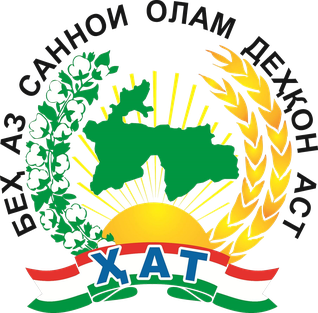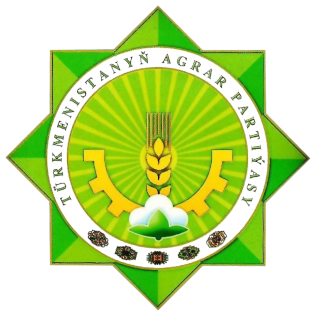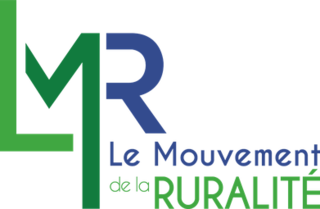 W
WAgrarian Democratic Party is an agrarian political party in the Czech Republic. It was founded on 9 December 2015. Party considers itself to be a successor to and follows the tradition of the Republican Party of Farmers and Peasants and builds on legacy of Antonín Švehla.
 W
WThe Agrarian Party of Tajikistan is an officially registered political party in Tajikistan, founded on November 15, 2005. Adheres to the ideologies of centrism, agrarianism and agrarian policy. The party's headquarters are located in the center of Dushanbe, and the party's youth wing is based at the Tajik Agrarian University in northern Dushanbe. The chief of the APT is Rustam Latifzoda.
 W
WAgrarian Party of Turkmenistan is an officially registered political party in Turkmenistan, founded on September 28, 2014.
 W
WThe Agricultural People's Front of Peru is an agrarian political party in Peru, founded in 1989 by Ezequiel Ataucusi Gamonal. The party had 42,083 members in 2020.
 W
WThe Authentic Croatian Peasant Party, or, translated more literally, the Autochthonous Croatian Peasant Party, is a centre-right political party in Croatia.
 W
WThe Auyl People's Patriotic Democratic Party or simply as Auyl, is a political party in Kazakhstan. It was originally founded by Gani Qaliev on 30 January 2000 as the Auyl Peasant Social Democratic Party before eventually merging with the Party of Patriots of Kazakhstan on 5 September 2015. The party is currently led by Senator for Turkistan Region Äli Bektaev from August 2015. With a membership of around 300,000 people, the Auyl since 2004 has participated in every Kazakhstan's parliamentary elections although never managing to enter the Mazhilis and has once nominated presidential candidate Toleutai Raqymbekov in 2019 presidential elections.
 W
WThe Belarusian Agrarian Party is an agrarian socialist political party in Belarus. It supports the government of president Alexander Lukashenko. The leader of the party is Mikhail Rusy, who succeeded Mikhail Shimansky in 15 March 2008.
 W
WThe Croatian Peasant Party is an agrarian political party in Croatia founded on 22 December 1904 by Antun and Stjepan Radić as Croatian Peoples' Peasant Party (HPSS). The Brothers Radić believed that the realization of Croatian statehood was possible within Austria-Hungary, but that it had to be reformed as a Monarchy divided into three equal parts – Austria, Hungary, Croatia. After the creation of Kingdom of Yugoslavia in 1918, Party requested for the Croatian part of the Kingdom to be based on self-determination. This brought them great public support which culminated in 1920 parliamentary election when HPSS won all 58 seats assigned to Croatia.
 W
WThe Environmentalist Agrarian Party is an Albanian political party founded in 1991.
 W
WThe Farmer–Citizen Movement is an agrarian political party in the Netherlands. It is headquartered in Deventer, Overijssel. The current party leader is Caroline van der Plas, who founded it in 2019.
 W
WThe Latvian Farmers' Union is an agrarian-nationalist political party in Latvia. It is considered to be as the oldest existing political party of Latvia. Since 2002, the party has formed the Union of Greens and Farmers (ZZS) in cooperation with the Latvian Green Party.
 W
WThe Lithuanian Centre Party, officially the Centre Party – Nationalists is an agrarian-centrist political party in Lithuania. Since the Seimas elections in 2016, it has been represented in the parliament and has also had representatives at the municipal level. The leader of the party is MP Naglis Puteikis. Its honorary leader was noted Lithuanian philosopher and nationalist thinker Romualdas Ozolas.
 W
WThe Agrarian Party of Moldova, formerly the Democratic Agrarian Party of Moldova, is a Moldovan political party that was prominent from 1991 to 1998. Governing for most of this period, the party represented a large centrist multi-ethnic bloc led by former collective farm chairmen and village mayors. These reformed Communists were motivated more by patronage than ideology and committed to maintaining their positions of power in the privatised agricultural and agro-industrial sector. To its right stood the pan-Romanians of the Popular Front, and to its left, the Socialists and later the Communists.
 W
WThe National Centre of Independents and Peasants is a liberal-conservative and conservative-liberal political party in France, founded in 1951 by the merger of the National Centre of Independents with the Peasant Party and the Republican Party of Liberty.
 W
WThe Party for a European Future is a political party in North Macedonia that largely represents Macedonian Muslims.
 W
WRepons Peyizan is a Haitian political party. Michel Martelly was elected President of Haiti for the party at the Haitian general election, 2010–2011. As of 2011 the party holds no seats in the Senate of Haiti, and only 3 of 99 members of the Chamber of Deputies of Haiti.
 W
WThe Rurality Movement, formerly Hunting, Fishing, Nature and Traditions is an agrarianist French political party which aims to defend the traditional values of rural France. Its current leader is Eddie Puyjalon. The party states it is neither right nor left but represents rural people on the whole in their diversity.
 W
WThe Socialist Revolutionary Party, or Party of Socialist-Revolutionaries was a major political party in late Imperial Russia, and both phases of the Russian Revolution and early Soviet Russia.
 W
WThe Swiss People's Party, also known as the Democratic Union of the Centre, is a national-conservative, right-wing populist political party in Switzerland. Chaired by Marco Chiesa, it is the largest party in the Federal Assembly, with 53 members of the National Council and 6 of the Council of States.
 W
WUnion of Greens and Farmers is an agrarian-conservative political alliance in Latvia. It consists of two political parties: the Latvian Farmers' Union (LZS) and the Latvian Green Party (LZP). It is the fifth-largest bloc in the Saeima. The Union of Greens and Farmers also cooperates closely with two localist parties: For Latvia and Ventspils and the Liepāja Party.
 W
WWe Have Had Enough! is an agrarian political party in Slovakia. It was formed following protests by farmers in 2018 and 2019 surrounding the allocation of EU farm subsidies.